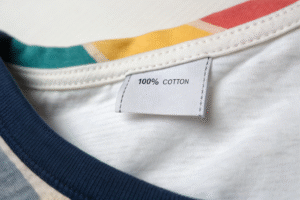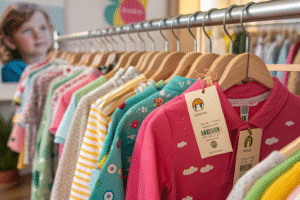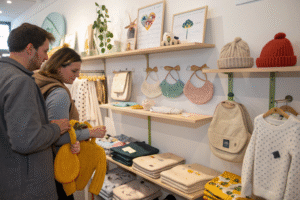As children grow, they often reach a stage where youth sizes no longer fit perfectly. Many parents wonder if transitioning to adult sizes—like a woman’s S or XS—makes sense for an 11-year-old.
Yes, an 11-year-old can sometimes fit into a women’s XS or S, depending on their height, weight, and body proportions. However, women’s sizes are cut for adult bodies, so the fit may differ in key areas like the chest and hips.
This article explores how youth and women’s sizing compare and helps you decide if an 11-year-old is ready to wear adult sizes.
What size do 11 year old girls wear?
Finding the right size for an 11-year-old can be tricky since growth rates vary widely at this age.
Most 11-year-old girls wear youth sizes 12, 14, or 16, depending on their height and build. Some may also start fitting into junior or women’s XS sizing.

What are the typical measurements for girls around age 11?
| Age | Height (inches) | Weight (lbs) | Youth Size |
|---|---|---|---|
| 11 | 55-60" | 75–100 lbs | 12–16 |
How do brands vary in sizing?
Clothing sizes differ across brands and regions. Some offer a more generous cut, while others run small. That’s why measurements are more reliable than age labels.
- Youth 14–16 is common for taller or broader 11-year-olds.
- Petite or slim 11-year-olds might still wear size 12.
- Girls with longer legs or torsos might prefer juniors or women’s XS.
Parents often find that transitioning to adult sizes offers more variety, especially in styles older children prefer.
What size is women’s XS in kids?
If you’re considering switching to adult sizes, how does a women’s XS compare to youth sizing?
A women’s XS is generally equivalent to a kids’ 14 or 16 in terms of chest and waist, but it’s cut for adult proportions, especially in length and shape.
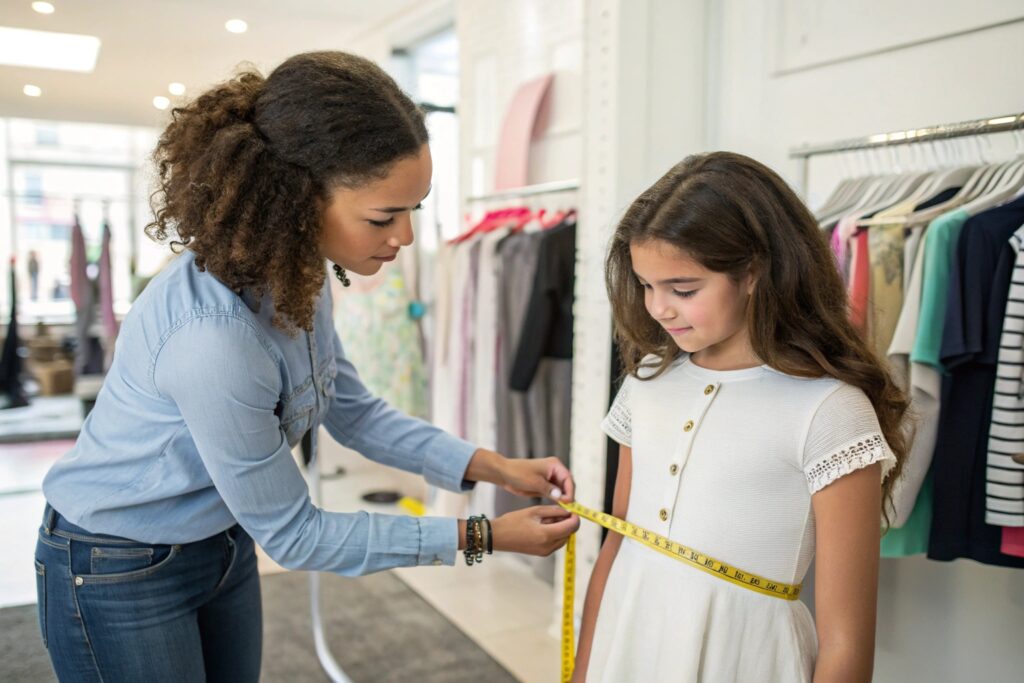
Women’s XS vs Youth 14/16
| Measurement Area | Women’s XS | Youth 14 | Youth 16 |
|---|---|---|---|
| Bust | 32–33" | 30–31" | 32–33" |
| Waist | 24–25" | 25–26" | 26–27" |
| Hips | 33–34" | 32–33" | 33–34" |
Main differences:
- Length: Women’s sizes are longer in torso and legs.
- Fit: Women’s XS is more shaped for curves, with defined waists and bust darts.
- Style: Adult designs may include lower necklines or tighter fits.
For casual wear like T-shirts or sweatshirts, an 11-year-old may fit into a women’s XS easily. For fitted clothing, youth sizes may offer a better cut.
What size is a ladies XS?
Understanding the details of a women’s extra small helps determine if it’s appropriate for a child.
A ladies’ XS typically fits women with bust measurements of 32–33 inches and a waist of 24–25 inches. It’s the smallest adult size and often overlaps with larger youth sizes.
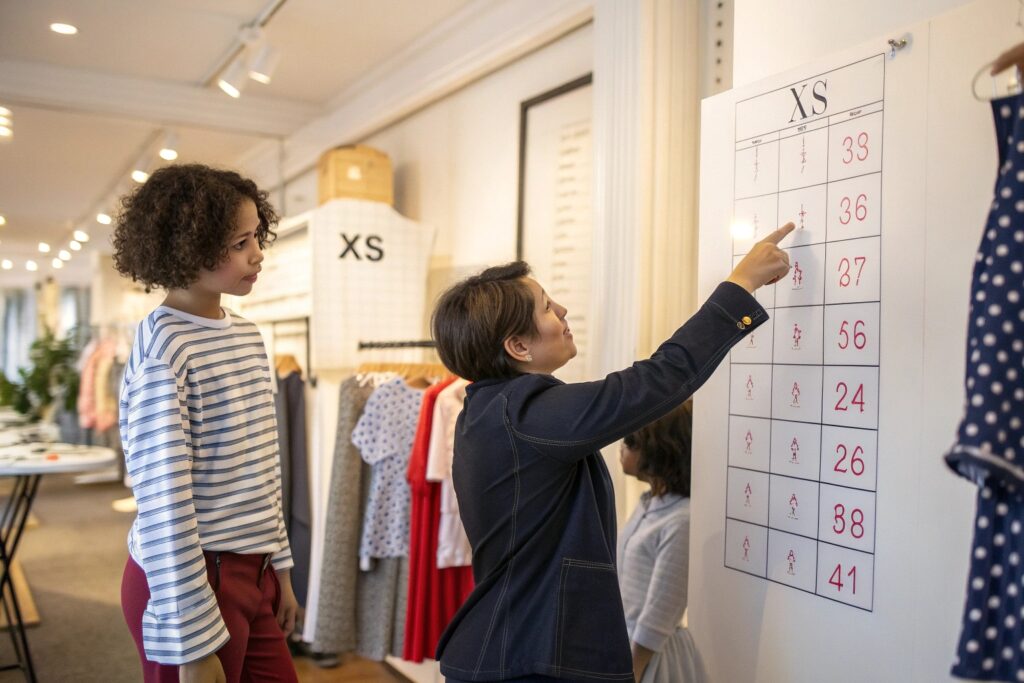
Standard Measurements for Women’s XS
| Body Area | Inches |
|---|---|
| Bust | 32–33" |
| Waist | 24–25" |
| Hips | 33–34" |
| Height (suggested) | 5’1"–5’4" |
Fit notes:
- Designed for petite women or teens entering adult sizes.
- Can be too long or loose for shorter or slim-built children.
- May fit well in loose styles like sweatshirts or activewear.
If a child’s measurements are similar to those above, women’s XS might be a good fit. However, be cautious with tight-fit items like jeans or formalwear.
How big is XS in age?
Clothing sizes are based on measurements, not age. But generally speaking, what age group fits into a women’s XS?
A women’s XS typically fits girls aged 11 to 13 who are tall or developing early. However, fit depends on body shape, not just age.
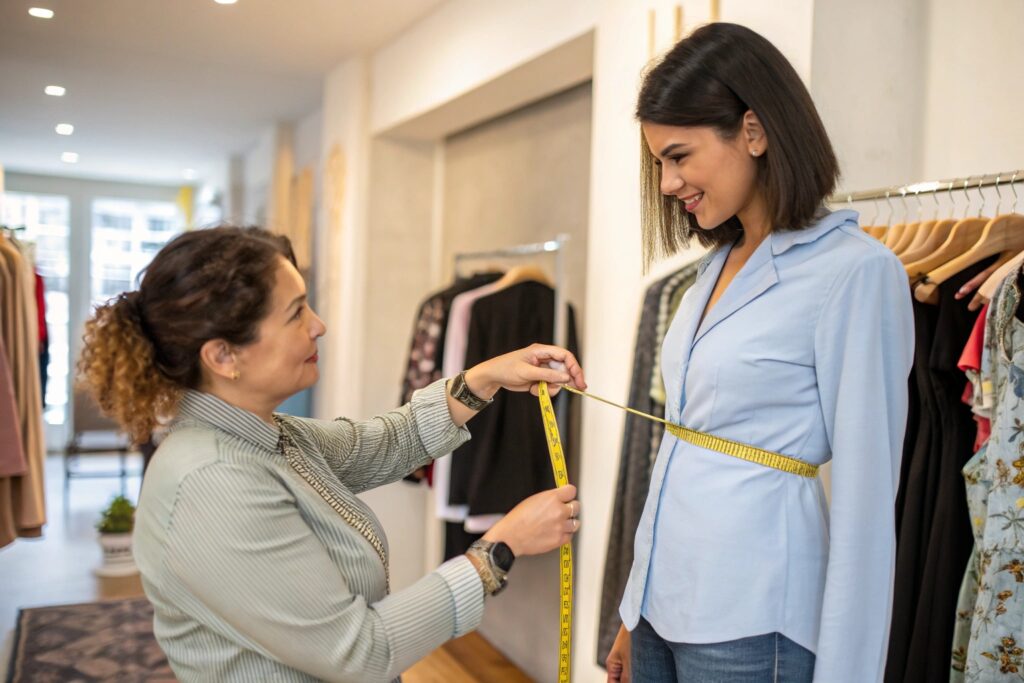
Age vs Size Comparison
| Age (approximate) | Typical Size Options |
|---|---|
| 10–11 yrs | Youth 12–14 |
| 11–13 yrs | Youth 14–16 / Women’s XS |
| 13+ yrs | Women’s XS – Small |
When should a child switch to women’s sizes?
- Youth sizes feel too short or tight
- Desire for more mature styles
- They fit comfortably in women’s size charts
Tip: Always measure bust, waist, and hips before buying adult sizes for kids. Many brands now provide measurement-based charts to avoid sizing guesswork.
At Fumao, we help brands create smooth sizing transitions from youth to junior and women’s lines to suit growing bodies.
Conclusion
A women’s XS or small can fit some 11-year-olds, especially those on the taller or more developed side. But due to differences in cut and proportions, it’s best to use actual measurements—not just age—when choosing between youth and adult sizes.





